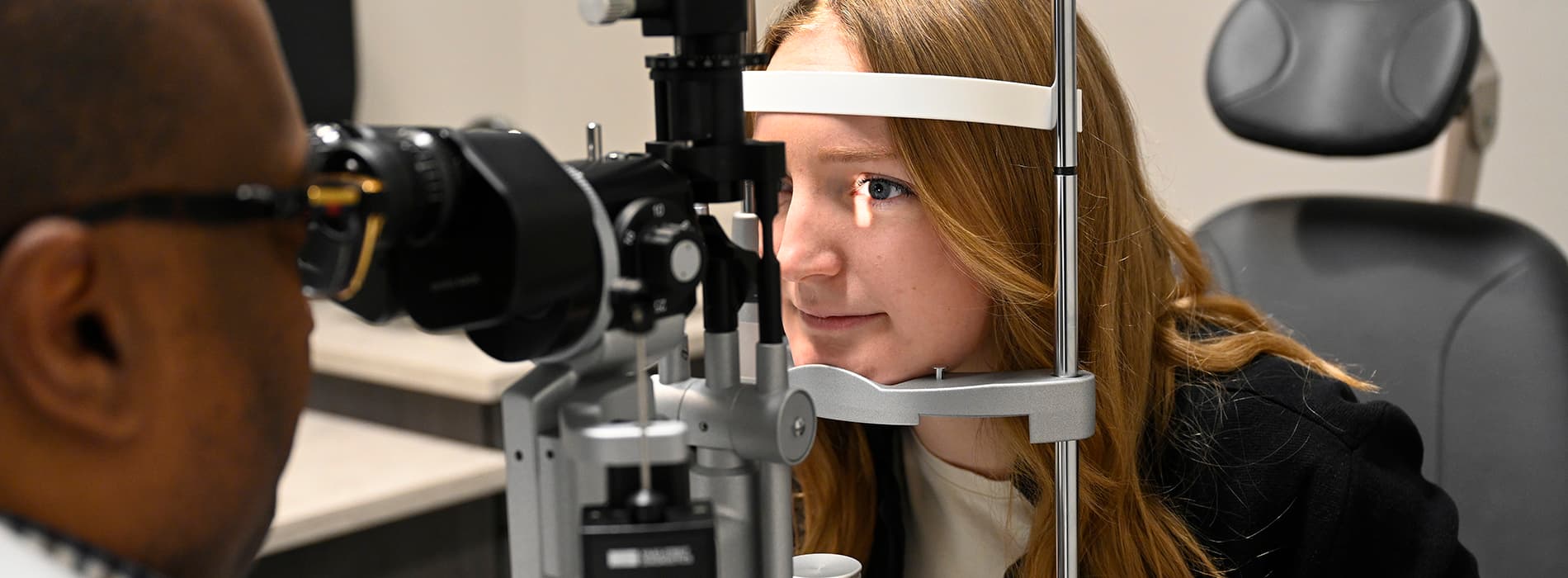UDM to welcome first cohort for accelerated 7-year Doctor of Optometry program

University of Detroit Mercy’s new School of Optometry welcomes its first class in August, while at the same time accepting applications for its accelerated program that allows a first-year student to graduate with a Doctor of Optometry in seven years.
“Our program stands out because students will earn their bachelor’s degree after three years of undergraduate work in Biology or Chemistry at the University’s McNichols Campus and then transition to the Novi Campus for four years of focused study in the School of Optometry,” said Sulman Hans, executive associate dean for Detroit Mercy Optometry.
According to Hans, this seven-year route saves students valuable time, thousands in tuition and guarantees qualified students a seat in the School of Optometry in their fourth year at Detroit Mercy. It joins other popular accelerated UDM programs, like the seven-year program in the School of Dentistry, the five-year Physician Assistant program and the five-year MBA.
With its first student cohort entering the program this fall, Detroit Mercy is stepping up to meet this pressing demand for optometrists, one driven by an aging population requiring more vision care, rising awareness of eye health and a growing number of retiring professionals.
Over the next decade, the U.S. Bureau of Labor Statistics projects a 9% growth in optometry jobs, or about 2,200 job openings each year, which is better than average for all other occupations. The new Doctor of Optometry (OD) degree from UDM opens the door for students to a prosperous career in vision care with a median annual income of $132,000 for optometrists in 2023.
“What sets UDM’s program apart is the way we combine clinical excellence with a mission-driven approach rooted in the values of compassion, service and academic rigor,” said Pablo De Gracia, the director of Research and an associate professor in the School of Optometry.
De Gracia noted that a distinct advantage of UDM’s program is the requirement of an introductory Optometry course consisting of 10 hours of clinical shadowing during the undergraduate part of the program. This is designed to help students understand the profession while fulfilling their clinical requirements.
This early clinical exposure will take place at the Detroit Mercy Eye Institute, housed on the Novi Campus. Optometry students will then participate in direct patient care during the last four years of the program, gaining valuable hands-on experience at this state-of-the-art facility designed to meet the diverse needs of metro Detroit.
De Gracia also said a small cohort of 44 students allows instructors to provide highly personalized attention and mentoring in a curriculum that combines foundational sciences with early and continuous clinical exposure. This means students will benefit from advanced digital learning tools and practical experience with conventional equipment.
“Detroit Mercy isn’t just preparing students to enter the profession; it’s preparing them to lead it, through innovation and groundbreaking research, as early as their freshman year,” De Gracia said. “Students are involved in research in virtual reality, visual performance, contact lens design and the growing field of myopia control.”
“Through collaboration with industry partners, students are exposed to cutting-edge technologies and real-world innovation that will help them make a difference in the future of eye care,” he explained.
Above all, a Detroit Mercy Optometry education transcends academics. Students learn the value of service in a program where dedication to community wellness is embedded into the curriculum and where service is more than just volunteering. Meeting real needs and building relationships through ethical and inclusive community connections, like providing affordable care to the uninsured and those with limited access to eye care, is central to UDM’s Jesuit and Mercy mission.
“Our community is one where students are seen, supported and challenged to become the best version of themselves—professionally and personally,” said De Gracia. “We are not only training future clinicians, we are forming leaders who will advocate for patient care, equity and advancements in vision science.”
Learn more about the new 7-year Doctor of Optometry program and the School of Optometry.
